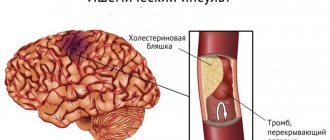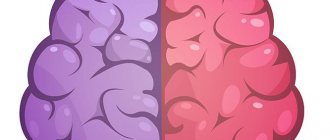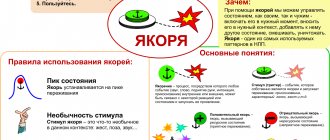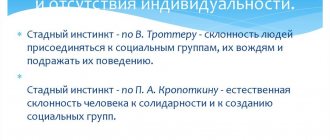Causes of nerve allergies
The manifestation of allergies is often triggered by psychosomatic factors. Symptoms of nerve allergies are similar to those of drug or food allergies, which makes diagnosis difficult. Basically, pathology develops in people who often suffer from neuroses, depressive and mental disorders. Disturbances in human mental activity provoke the development of physiological discomfort and diseases of various origins.
Psychosomatic allergies develop against the background of the following circumstances:
- Prolonged nervous overstrain.
- Impaired functioning of the immune system.
- Stress factors and irritants.
- Serious psychological trauma.
- Chronic stress.
- Unfavorable working conditions.
- Lack of comfortable living conditions.
- Dietary disorder.
- Individual character of the person.
- Infections, viruses and bacteria in the gastrointestinal tract.
- Hereditary predisposition.
- A sharp change in lifestyle.
- Sudden move to different climatic conditions.
- Lack of proper rest.
Causes of allergies and psychosomatics
Despite the prevalence of the disease, the causes of its occurrence have not yet been studied by medicine. Scientists have long established the mechanism of allergic reactions; they have answered the question “how”, but still cannot answer the question “why”.
There are several main theories about the occurrence of allergies. The first of them is parasitological. Its essence is that the body’s aggressive immune response to harmless stimuli is an ancient and complex system of defense against parasites that helped a person survive. Nowadays, especially in developed countries, people rarely encounter parasitosis, so the immune system declares war on any similar proteins.
Next to it is the hygienic version of the origin of allergies: insufficient loading of the immune system in children leads to a hyperreaction to harmless stimuli. Taking antibiotics and using antibacterial agents in everyday life lead to an increase in the incidence of allergies.
There is a version that allergies are a kind of shield for the body: recognizing foreign cells by their harmful effects (opening the cell membrane, destroying proteins), the body creates a quick response system.
The theory of genetic transmission of allergies from parents to children is very popular. Indeed, it has been scientifically proven that the risk of hereditary predisposition in children of those who suffer from allergies increases. However, no direct correspondence was found between the allergies of parents and children.
Technogenic theory speaks of the negative impact of chemical industry products on the nervous and endocrine systems of humanity. But one of the most popular versions of the occurrence of allergies in humans is psychosomatic.
The stress theory explains physical illnesses as a result of stress. About 40 diseases are included in the list of psychosomatic diseases, including allergies and bronchial asthma. As confirmation, the fact that allergies often occur or worsen under the influence of stress is considered.
From the point of view of psychosomatics, the cause of allergies in a person is experienced negative emotions that have left a deep mark on the subconscious level. Some psychologists go even further and specifically assign feelings of suppressed protest and the inability to come to terms with the circumstances of one’s life as responsible for allergies.
Evidence-based medicine avoids such conclusions. And yet there is a rational grain in the theory of psychosomatics. Each case is individual, and it happens that the best results are achieved not only by taking medications, but also by working together with a psychotherapist.
Symptoms of nerve allergies
Allergic reactions have quite diverse manifestations and cause disruption of the entire body system. Common symptoms of nerve allergies include:
- Feeling of lack of air, attacks of suffocation.
- Red spots on the skin.
- Excessively pale skin with the appearance of inflamed blisters.
- Attacks of nausea.
- Dizziness to the point of loss of consciousness.
- Disorders of the gastrointestinal tract.
- Trembling in limbs.
- Unreasonable tearfulness.
- Increased level of sweating.
- Severe fatigue and weakness.
- Depressive state.
- Depressed mood.
- Feeling very sleepy during the daytime.
- Apathy.
- Vague consciousness and vague thinking.
- Muscle spasms.
- Visual impairment.
Such manifestations are abruptly replaced by excellent mood and physical balance. However, symptoms recur regularly and may appear in conjunction with food and drug intolerances and external irritants.
Signs of nerve allergies
Signs of a nervous allergy
The signs of a nervous allergy are the following:
- Urticaria is a small red rash accompanied by severe itching, which intensifies at night. Appears in any part of the body and eventually merges into larger spots. When scratching, small wounds form on the skin and fester.
- Eczema is the result of a long-term allergy.
- Allergic rhinitis is the discharge of clear mucus from the nasal cavity, causing swelling of the nasal mucosa. There are disturbances in the functioning of nasal breathing, which lead to discomfort and oxygen starvation of the brain.
- A paroxysmal dry cough is a characteristic manifestation of a reaction to stress. The cough can be so strong that it causes a person to have asthma attacks. In the absence of timely and correct treatment, bronchial asthma of an allergic nature develops.
- Disorders in the gastrointestinal tract are accompanied by pain in the abdomen and stomach. There is bloating and loose stools.
- Trembling in the body , limbs, tachycardia, increased level of sweating are signs of a response of the nervous system to a present stimulus.
- Changes in the emotional background - irritability, fatigue, drowsiness, apathy, poor concentration.
Stress and skin diseases
The skin is highly sensitive to psychogenic and situational influences.
Psychogenic skin itching, local or generalized hyperhidrosis (sweating), etc. are prone to reverse development after stress is relieved.
There is a group of dermatoses whose manifestation and subsequent recurrence are mediated by mental trauma.
The skin more often than other body systems becomes an “accomplice” of mental illnesses ( neurotic excoriations, trichotillomania, zoopathic delusions, dysmorphophobia, cheilophagia, onychophagia , etc.)
Along with vulnerability to stress, expressed in the form of dermatoses, inverse relationships are also observed.
Dermatological diseases with a chronic course, torpid to therapy, accompanied by severe itching and rashes, localized in “intimate places”, as well as on open areas of the skin, can themselves cause severe stress and provoke psychogenic disorders.
Zoopathic (dermatozoal) delirium . Patients are convinced that they are infected with scabies or other parasites. They “see”, “feel”, “touch” insects. This state of affairs at the current level of knowledge is the subject of debate. Many researchers consider this a manifestation of organic damage to the central nervous system. Others consider this condition within the framework of schizophrenia, its debut.
Such patients require microscopic and other examinations of materials containing insect or parasite “particles.”
The epithelium, villi, and pellets are filled into special containers (“matchbox symptom”) and provided in the laboratory as larvae, eggs, or waste products of parasites.
A negative answer is seen only as a reason to expand the range of institutions for providing “material evidence.”
Fighting parasites, handling disinfection requirements, own methods of control, including “poisoning insects from the body,” can take on the nature of self-harmful actions: cauterization, use of scissors, needles, razor blades. These injuries are located on easily accessible areas of the body - the face, upper and lower extremities, and the upper third of the back.
Such patients pay special attention to their linen - chemical treatment, washing, boiling, ironing several times a day, changing their wardrobe.
Neurotic (psychogenic) excoriations are actions accompanied by self-harm, which are preceded by feelings of discomfort and itching of the skin.
The desire for repeated scratching and removal of a non-existent rash leads to the formation of fresh excoriation scratches against the background of previously unchanged skin, followed by the formation of scars. Combing is often preceded by a visual inspection or touching the skin. After the stage of self-harm (when the scabs are torn off and the skin is combed), comes the stage of temporary relief, internal satisfaction. Then inevitably follows an increase in discomfort. Attempts to prevent or stop scratching are often ineffective.
Excoriated acne differs from neurotic excoriation in that it forms against the background of real acne.
In areas of systematic scratching, persistent destructive changes in the skin develop, accompanied by increased sensitivity to external irritants. In this case, erosions and scratching themselves can be accompanied by itching and burning. Thus, the somatic stimuli of scratching are also added to the psychopathological ones.
Voinilko M.V.
Diagnostics
To eliminate allergic reactions caused by dysfunction of the nervous system, a special diagnostic examination should be performed. The allergist conducts a visual examination of the patient, clarifies the symptoms of allergies, examines the skin and mucous membranes of the nasal cavity and throat. The specialist prescribes the following tests:
- Skin tests allow you to determine the causative agent of allergic reactions. If there is no positive reaction to allergens, the patient is referred to a psychotherapist for further examination. The cause may be stress, which caused the development of allergies.
- Study of the immunoglobulin E indicator. If the indicator remains normal, and the patient has increased excitability and frequent mood swings, then the cause of the allergy is a malfunction of the central nervous system. In this case, an examination by a neurologist and psychotherapist will be required.
Dependence of allergies on stress
13.05.2021
that illnesses often occur due to resentment, depression and bad mood. When contact with an allergen , the immune system tries to protect the body and then the person begins to cough and sneeze. He develops itching, suffocation, rash and swelling. He complains of a headache and rapid heartbeat.
If stressful situations occur too often, a person experiences emotional stress, and then an active chemical is synthesized in his body that causes inflammation. All states that are uncomfortable for the psyche are perceived as a threat, and the body makes attempts to protect itself. Various diseases appear: eczema , urticaria and edema . We cannot avoid stress and are forced to adapt to it, because of this, psychosomatic reactions begin, leading to the inflammatory process.
What causes allergies?
reduce immunity and increase allergy : low emotional background, depression , prolonged stress. Due to stress, which reduces immunity , allergic dermatitis and colds occur much more often. It turns out that solving the problem of allergic reactions will be much easier if you eliminate the cause of the stressful situation. hormones increase the speed of the immune to the allergen .
Stress provokes allergic reactions if there is a genetic predisposition and aggravates its course. the nervous system malfunctions, the immune system is also disrupted . It is not always possible to see the connection between allergies and stress. This is explained by the fact that symptoms do not worsen immediately after a difficult situation arises and at the time of depression. They appear only after a few days.
Stressful situations increase the likelihood of exacerbation of asthma and other chronic diseases. Factors may include:
- conflicts at home and at work;
- hot temper;
- grief in the family.
If nervous irritants constantly surround a person, the body weakens and becomes depleted, the immune system stops doing its job and allergies that do not have a specific allergen .
Symptoms of stress allergies
Signs of the disease are:
- small rash, itching worsening at night;
- eczema prone to relapse;
- rhinitis with headache and poor health, loss of performance;
- severe cough with attacks of suffocation. Possible transition to bronchial asthma ;
- tachycardia , tremors of the limbs;
- irritability, fatigue, drowsiness, apathy and poor concentration.
Diagnosis of stress allergies
The effectiveness of treatment depends on a correct diagnosis. A specialist allergist conducts 2 examinations: a visual examination and processing of information about the disease obtained after a conversation with the patient and the results of the examinations. If the doctor notices an imbalance in the patient’s condition, he may suspect nervous allergy He examines the skin and mucous membranes, and sends for laboratory tests:
- skin test for the causative agent of an allergic reaction ;
- The level of immunoglobulin is studied. A normal indicator and increased excitability of the patient suggest the presence of pseudo-allergy.
Treatments for stress allergies
Treatment must be comprehensive. Therapy includes medications: antihistamines in tablets and injections, depending on the weak or strong form.
Lesions on the skin are treated with ointment and cream. to effectively cleanse the body of excess hormone .
To treat allergic rhinitis, nasal mucosa is irrigated with saline solutions. Vasoconstrictor drops are not used.
A nervous cough cannot be cured with antitussives. To alleviate the condition, they use inhalations with saline solution and try to humidify the air in the room more often.
Medications are prescribed to normalize the nervous system .
To boost immunity and cure allergies , they take products to improve intestinal .
To cure nervous allergies , eliminate nervous tension and turn to a psychologist to get out of depression . This type of disease requires specific treatment and must be taken seriously.
Published in Allergology Premium Clinic
Treatment of nerve allergies
Treatment of nervous allergies includes a complex of medications and psychotherapy sessions.
Therapeutic treatment is carried out on the basis of drugs:
- Antiallergic drugs (Suprastin, Tavegil, Citrine) help eliminate itching and skin rashes. The selection of the drug is selected by a specialist for each patient individually. For mild allergic reactions, tablets are prescribed; for severe rashes, injections are used.
- To eliminate lesions on the skin, creams and ointments (Solcoseryl, Gistan) are prescribed.
- Entrosorbents are used to cleanse the body of harmful substances and various types of allergens (Polysorb, Enterosgel).
- Solutions for the nasal mucosa to eliminate allergic rhinitis.
- Medicines to relieve paroxysmal cough. Additionally, saline-based inhalations using a nebulizer are used.
- Sedatives (Novopassit, Tenoten) will help normalize the functioning of the nervous system.
- Preparations for improving intestinal microflora (Linex, Normobakt, Maxilak).
Comprehensive treatment of nerve-related allergies includes the following psychotherapeutic techniques and physiotherapeutic procedures:
- Acupuncture.
- Reflex-manual therapy.
- Massage of biologically active points.
- Regular visits to a psychologist.
- Taking homeopathic medicines.
- The use of hypnosis and neurolinguistic programming.
Timely contact with a specialist, compliance with all doctor’s appointments and instructions, will allow you to cope with the manifestations of allergic reactions in a short time. It is recommended to avoid stressful situations, spend more time outdoors and exercise.
Types of allergies
The manifestations of allergies are truly varied. The body can suddenly declare war on anything. But there are the most common and well-studied types of allergies, for which a cure has long been invented.
Allergy urticaria
In fact, this is not a specific type of allergy, but rather a way of its manifestation. Urticaria is an allergic skin reaction that can be caused by many factors. Hives are caused by food allergens, pet dander, pollen, insect bites and more.
Urticaria is characterized by redness of the skin, itching, and the appearance of swollen stripes with clear edges. When you press on the red stripes, they turn white - this is how urticaria is identified.
If urticaria is not complicated by other symptoms, it goes away on its own. But if it causes severe discomfort, it is treated with antihistamines, adding corticosteroids in particularly severe cases.
Allergy to the sun
Sun allergy or photodermatitis affects 20% of people in the world. At the same time, the sun's rays themselves do not cause harm to a person; the problem arises from the fact that under their influence substances that cause allergies accumulate in the skin.
Manifestations of sun allergy appear as redness and swelling in areas exposed to sunlight. But, unlike sunburns, they are accompanied by itching, blisters, and peeling of the affected areas. The general effect of photodermatitis is manifested in weakness, malaise, and fever.
Photodermatitis carries a high risk of developing eczema, so you should not hope that it will go away on its own. Moreover, methods for treating sun allergies have long been known. External treatment consists of applying special ointments containing lanolin, zinc or methyluracil to the affected areas.
Drugs that support liver function and promote skin regeneration are prescribed internally: antioxidants, vitamins B, C and E, nicotinic acid. Itching is relieved with antihistamines, and skin inflammation is relieved with non-steroidal anti-inflammatory drugs.
Allergy to mosquito bites
Insect bites can cause severe allergies, including anaphylactic shock. When bitten by a mosquito or other insect, an allergic reaction occurs very quickly: redness and swelling appears at the site of the bite, up to 10 cm in diameter, severe itching and burning occurs.
In severe cases, swelling can spread to the entire limb, causing fever, headache, high fever and attacks of suffocation. This is caused by mosquito saliva containing allergen proteins. It causes an allergic reaction 6-8 hours after entering the body, which increases within two days.
Treatment for allergy to insect bites depends on the type of manifestation. A local reaction is usually treated with antihistamines or glucocorticoid ointments. If necessary, use hormonal agents.
If you have a systemic allergy to mosquitoes, it is better not to self-medicate. A systemic reaction is very dangerous and can lead to serious consequences. In this case, the injured person should be taken to the hospital as soon as possible.
Allergy to flowers in spring
Flower allergies or seasonal allergies are one of the most common. In our area, the most problems arise in connection with the flowering of birch, alder, poplar, ambrosia and quinoa. The medical name for this allergy is hay fever.
Symptoms of hay fever include itching and discomfort in the nasal cavity, runny nose, frequent sneezing, nasal congestion and conjunctivitis. In its external manifestations, hay fever is very similar to a cold, but its appearance is strictly seasonal - during the flowering period of plants that cause allergies.
Their pollen, entering the human respiratory tract, causes an immune response. It provokes not only a runny nose, but also shortness of breath, weakness, general malaise, as well as problems with appetite and sleep, increased fatigue and depression.
Hay fever cannot be completely cured; it is a chronic disease. But now medicine has learned to make it as easy as possible. The first thing a person with a pollen allergy needs to know is to distance themselves as much as possible from the source of allergens during the flowering period. As for drug therapy, it is selected individually, including the use of the hyposensitization method.
Allergy to cherries
The group of food allergies is very large. One type of food allergy is an allergy to cherries. People who are highly sensitized to plant pollen most often suffer from an allergy to cherries, because it is caused by a similar allergen Pru av (1-3).
Allergens Pru av do not decompose during heat treatment, so a reaction is caused not only by fresh cherries, but also by dried/frozen berries, as well as preserves, jams, compotes and sauces.
Manifestations of cherry allergy develop in several directions at once: oral allergy, digestive upset, respiratory and skin symptoms. They can occur both at the time of consumption and after a few hours. In severe cases, the situation can end in anaphylactic shock.
Treatment of allergies to cherries is possible with antihistamines for allergies, which are available in the form of tablets and capsules, syrups and suspensions. Modern allergy medications are safe for children and adults and do not cause increased drowsiness. More severe cases of cherry allergy are treated with hormonal (corticosteroid) medications.
Allergy to cats
Pets, particularly cats, also cause allergic reactions. And this is very sad, because sick people are often faced with a choice - health or a pet.
It is generally accepted that cat hair causes an allergic reaction in people. But this is not true, the fur itself is harmless, but it is a carrier of cat protein contained in the saliva of animals. In this case, cats' cleanliness plays against them - by constantly licking their fur, they leave protein on all surfaces they come into contact with.
Symptoms of a cat allergy appear soon after exposure to the animal. They are cutaneous and respiratory, differing greatly in specific manifestations and intensity.
Eliminating cat allergies involves minimizing contact with the allergen. Some people prefer to get rid of their pet, but most people find it helpful to adjust their home routine: grooming the cat, thorough cleaning and, in difficult cases, taking antihistamines.
Allergy to cold
Cold allergy is a negative reaction of the body to exposure to low temperatures. Until recently, it was not classified as an allergy, because the immune reaction is caused not by a substance, but by the physical impact of low temperature. Surprisingly, but true: cold causes a strong release of histamine in some people, which causes swelling of the mucous membranes and a typical skin reaction.
Treatment of cold allergies is complicated by the fact that exposure to the allergen cannot be eliminated. Therefore, the problem is approached symptomatically: antihistamines are prescribed and the body is protected as much as possible from exposure to low temperatures.










